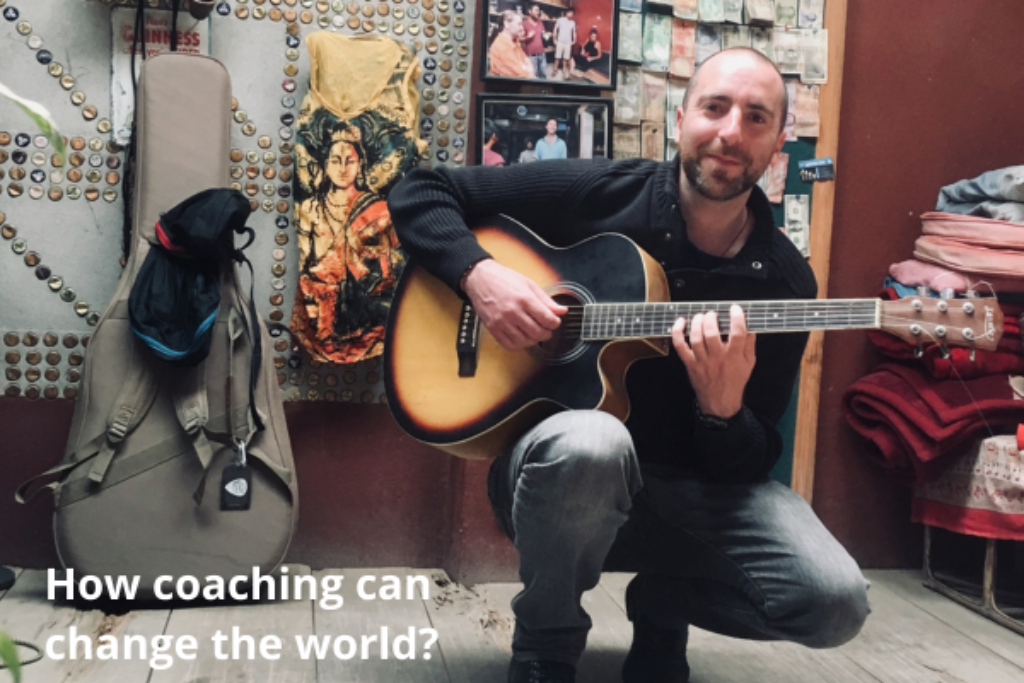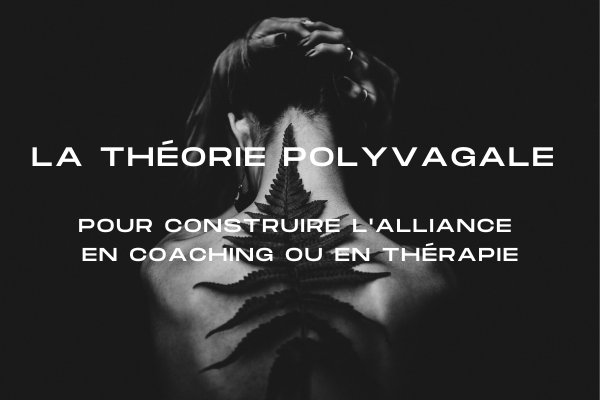What is Ethical leadership ?

“When you change yourself, you change the world”. Totally true, isn’t it? It could have been a quote of the Buddha himself but these are the lyrics of a song from the famous French metal band Gojira. For sure, you might know them as they played at the Olympic Games opening ceremony. These words could also reflect the essence of coaching. For instance, in coaching, we help our client to shift their cognitions (i.e attention, perceptions, thoughts, limiting beliefs systems) so they can make new decisions, develop new behaviors and attitudes, and achieve their goals faster.
In coaching, mentoring and supervision, I usually work within these 4 frameworks:
- Clinical where the problem of the client can be perceived as a formation of the unconscious.
- Cognitive and behavioral where the problem is perceived as a limitation in the learning process.
- Systemic where it is about communication and relationship between the elements of the client system.
- Maieutical where the deeper request is a call for meaning and a sense of purpose. It is a humanistic approach based on values as a source of fulfilment and a client-centered approach.
When you are able to master different approaches, you can adapt smoothly your coaching strategies to the deeper request of your client. Then, in the safe place of coaching, the client can allow himself to be vulnerable, shift patterns of thoughts and be fully himself. In such perspective, empowerment is about taking back our responsibility and autonomy.
Why do I quote Gojira? 😊
Because, as artists, this band truly embodies a new kind of leadership called ethical leadership, where leaders commit themself to a higher purpose. Beyond self-interests, they use their talents to make an impact supporting global causes that could be social or environmental. As an example, recently, with a stance of an environmental peaceful activist, the singer Joe Duplantier used his influence to gather people to stand for Paul Watson liberation (who is the founder of Sea Sheperd – and by the way – another ethical leader that dedicated his life to preserve the oceans and biodiversity). Usually, their success doesn’t come from one day to another. What you see is the result of work and commitment. For example, Gojira’s members have been tuning and mastering their art for more than 2 decades. Being an ethical leader means resilience, dedication, self-awareness and systemic thinking. On the one side, you have to know yourself deeply and be focused, and on the other side, you have to be open to what happens in our global and interconnected world. It is a subtle mix of hard skills, soft skills, aligned with core values. This is a path for a life filled with a deeper sense of purpose.
The good news is that to be an ethical and inspiring leader, you don’t have necessarily to be a saint or live in a cave in the Himalaya. Nowadays, you “just have to” walk the talk and embrace fully who you are. It means integrity and inner work. In this article, we will look at leadership through the lenses of values and soft skills.

The key of fulfillment
Congruency (or alignment) is the constant adequation between our values, words and actions. It allows us to receive emotional gratification and develop virtues and talents (soft-skills, inner qualities, character strengths …). We could say that congruency is the skeleton key for a tailored happiness. When you go towards the opposite of your values and needs, you would feel emotions like anger, sadness or fear. You might also feel cognitive dissonance that is an inner tension when your thoughts and actions are not consonant.

I have had the opportunity to coach managers and employees who experienced a burn-out. I could observe that the common denominator was that all of them were pushing themselves too hard and following the opposite of their core values. Basically, at some point, they felt a contradiction between their values and the corporation’s ones; and they stayed there because of systemic loyalties, inner contradictions or personal constraints.
Sometimes, however, working for a company (or even being an entrepreneur) can be perceived as a successful love marriage. In such a case, sharing common values that promote meaningful goals is the secret of long-term partnerships and relationships. Values not only offer the opportunity to feel happier and more fulfilled, but also will bring a sense of purpose.
Furthermore, as the psychoanalyst Viktor Frankl discovered, there are 3 ways to feel a sense of purpose in life:
- Ethos: To serve a higher purpose beyond oneself. As an example, it usually happens for activists, or for people working within NGOs or organizations that are committed to their raison d’être.
- Eros: To build-up sustainable and personal relationships with specific people: partner, family, friends, colleagues.
- Pathos: To engage in projects that allow us to create things and get visible results.
All these paths of meaning (or life orientations) are sustained by our core values.
The culture of enlightenment
Today, we still tend to think that employee’s performance is the balance between skills and needs. It is not true anymore. If people are not happy or skilled, they just leave the company.
To create a virtuous culture, as leaders, we do have to think systemically about our impact on our ecosystem. For such reason, at some point, it is important to step back and reflect on the company’s DNA which are its Raison d’être, mission, cores values and engagements. Is it just a statement on a website or is it fully embodied in the daily life of the employees?
Any doubt?
Just go to the coffee machine and have an open discussion! And remind: don’t kill the messenger! There is wisdom out there. Systemically a rebel is usually a game changer bringing innovation to the company.

A culture of enlightenment is one that embraces diversity as richness, support the inner growth of its employee and value evolution. It is where there is a convergence of purpose, relationship and projects. As CEOs, HR people or managers, here is a source code to develop efficient and meaningful organizations. Indeed, the long-term commitment can be developed through 3 levers:
- Develop the pride to belong so the employees can identify themselves with the company’s values and are able to recommend its services.
- Increase attachment to the company (teams, colleagues, managers, clients) and trust among the employees.
- Strengthen the will to do (which is the energy and enthusiasm that the employees bring to the work with a deep interest for their missions, role and activities).
There are many ways to strengthen these feelings. But, remember that all the actions have to be aligned with the core values of the company.
To get a high and long-run commitment, HR should not recruit only on hard skills and experience. In fact, they should also recruit employees based on shared values and soft-skills. Values will guarantee natural motivation, commitment and the will to learn. Soft-skills will facilitate the inclusion of the new recruit in the team, and they will value the corporation’s DNA. In the long run, soft skills can be developed in different hard skills, adapted to different roles.
That’s not easy. For that reason, with my team, we developed the HOVTA Assessment, which is a powerful tool helping to recruit, manage and coach with a sense of purpose. It supports organizations to identify values, core motivations, styles of leadership and soft skills of their employees and teams. It brings coaching to a deeper level of reflexivity.
Conclusion
To conclude, I will quote the words of another ethical leader, Lama Zopa Rinpoché, who dedicated his life to benefit sentient beings. Rinpoché has been one of my teachers and, for one of my books, he honored me with this foreword: “What you learned; this profession is only external. This is how to do things externally. That’s not enough. If you really want happiness, if you’re really looking for peace and happiness, inner happiness, that’s not sufficient. You need to be professional inside. You need to be professional mentally. You need inner professionalism”

May we have the strength to practice it daily. May we dare to explore our inner world. May we be able to do the inner work in a reflexive space either in coaching, psychotherapy or supervision. May we discover our core values and be brave enough to keep walking the talk. May we be able to use our talents to benefit others. May we become ethical leaders. And, on the path, may we be happy! 😊
Glossary:
- Values are core motivations or beliefs systems that drive our thoughts, decisions, judgments, actions, behaviors and attitudes. They are the keys to team cohesion, performance, commitment, fullfilment and a sense of purpose.
- Talents are soft skills, natural abilities and qualities. They could help to develop hard skills. The characteristics of talents are that they are personal, pleasurable and effortless to use, impactful, innate and recognized. They define our personality. The company challenge is to offer environments where talents can be expressed and evolve.
- Life orientations: They are natural tendencies to be focused upon, for satisfying one’s needs, accomplishing oneself or looking for a deeper meaning and higher purpose.
- Hard Skills are specific savoir-faire that offers direct results and satisfies the company needs.
And for the sound, here is an inspiring song of Gojira. For sure, you will keep the chorus in mind 😊


